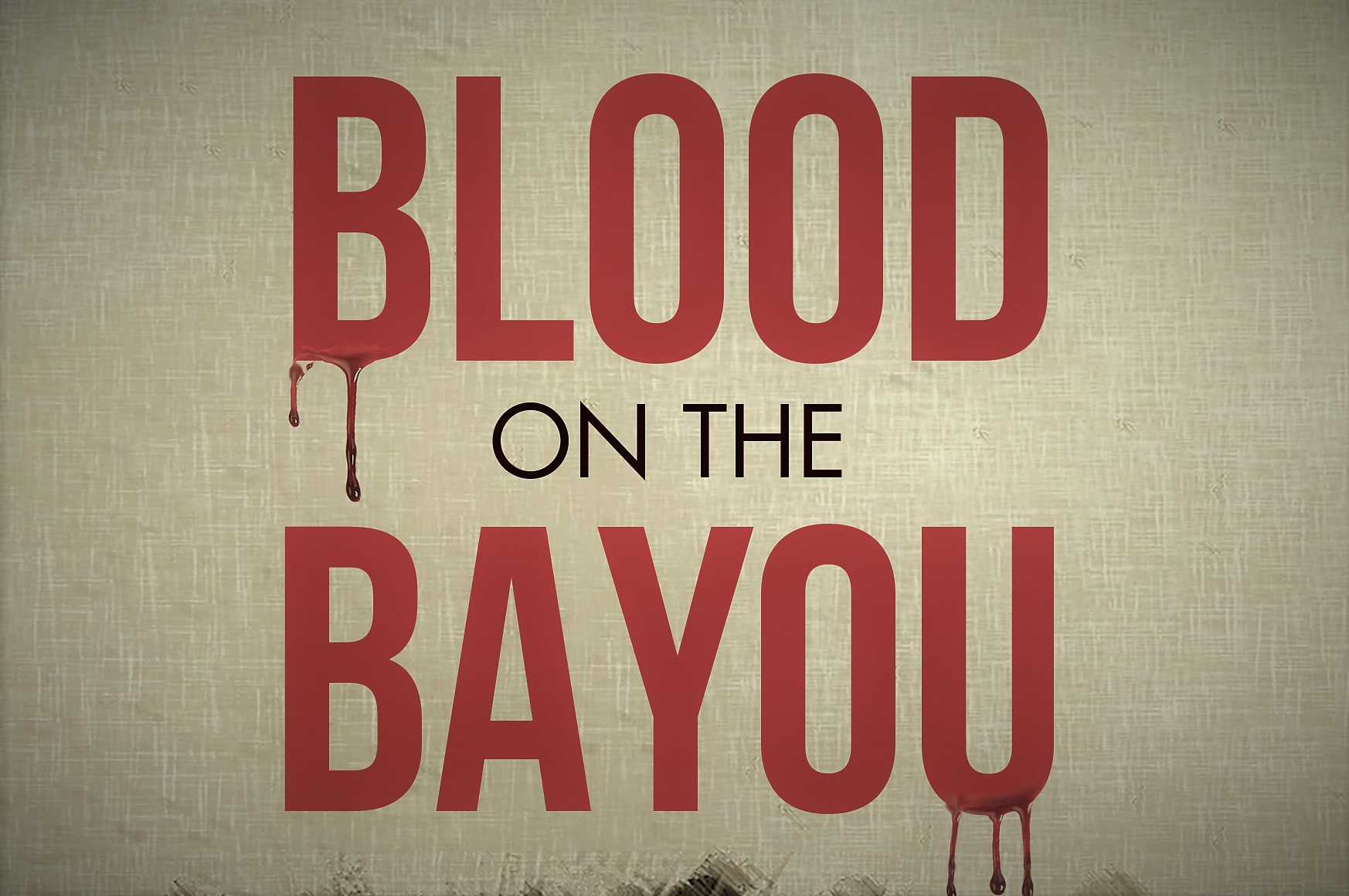Today is the last day to pre-order Blood on the Bayou, my new crime thriller based in New Orleans. Head over to Amazon or Barnes & Noble to order your copy and get it right away when it releases tomorrow, April 12th! For now, please enjoy this preview.
Raleigh Broussard, captain of the New Orleans 8th District Police—the French Quarter—greeted every weekday morning with his usual routine. Up at 5:30 a.m. to an ever-annoying alarm, he dressed in shorts and took his morning run. He was a large man, a former linebacker, and being Black he knew he presented an imposing figure as he clocked his two-mile run around his Exchange Place neighborhood. His neighbors left him alone, and that’s how he preferred it. Although he missed his wife, dead now for five years, and cherished breakfasts with his daughter, who had followed in his footsteps and was attending LSU, he still preferred his solitude.
He also cherished his cigars and bourbon, two habits he’d succumbed to as a collegiate and professional athlete. His NFL career was cut short by a blown knee after just three seasons with the New Orleans Saints, but his pension was the gift that kept on giving, affording him his expensive townhouse and his premium cigars and whisky.
On a normal weekday, Broussard would finish his run, shower, grab a coffee and head to work, but today was Labor Day. He decided to splurge on a big breakfast, and relax with the newspaper. He generally found the news boring, unless it concerned his beloved Saints.
As he picked up the paper from the front stoop, however, the front page story above the fold caught his attention.
Another body was found in the French Quarter, throat slit. Most days, he’d read such reports as just another crime in a city riddled with violence, particularly in the heat and stifling humidity of summer. But summer was nearly over, and the weather would soon cool. Because the latest body had been found only hours before the paper was printed, the report was void of much detail except for one fact that made Broussard’s stomach turn. The victim held a crude wooden cross in his hand and had “XXX” carved in his forehead. The reporter wrote that it was the mark of the so-called Bayou Slasher, New Orleans’s name for its latest serial killer.
The report abruptly brought Broussard back to what he most wanted to avoid—a ruined holiday—knowing that he’d get a call to go to his office and begin an investigation of yet another in what had become a series of killings paralyzing New Orleans. Horace Guidry, the city’s Superintendent of Police, had been demanding Broussard find the killer and put an end to the random bloodletting.
Guidry’s direct pressure on Broussard was leapfrogging the chain of command by ignoring Chief of Police Lewis Gersh, to whom Broussard technically reported, but Guidry didn’t care. This was a case where reputations could be made or broken, and he was not about to let someone else make the calls between him and the man in charge of the district where the murders were taking place. Neither Broussard nor Gersh liked it, but there was nothing they could do. No one liked to get in Guidry’s way.
Guidry insisted on being called “Commissioner,” not his official title of Superintendent. Commissioner was a moniker great cities like New York gave their top cop. Guidry thought that was the least he deserved.
As if on cue, Broussard’s cell phone rang and “Superintendent” appeared on the caller ID. He had no respect for Guidry any more than Guidry did for him. If Guidry could, he’d fire Broussard, but every mayor of New Orleans Broussard worked for liked him and had no intention of letting him go. Indeed, the current mayor was inclined to promote him. If the mayor could fire anyone, it would be Guidry, but because the superintendent was a political appointee who knew where the bodies were buried, firing him was impossible.
“Raleigh, I assume you’ve read the paper,” began Guidry. “This is the third murder tied to this religious zealot. I could dismiss the damned press labeling him a serial killer after two murders, but now we have a third. And his latest is the son of a councilman. It doesn’t get worse than that.”
Sure it does, thought Broussard. He’d seen enough murders in the past fifteen years that were far worse than the killing of a councilman’s son. New Orleans had the dubious honor of being in the nation’s top two or three cities in homicides every year. Atrocities happened every day.
“Listen, Raleigh, I know we don’t get along.”
No shit, thought Broussard. You’re just an overweight politician who acts like an old southern plantation owner overseeing his slaves while he enjoys a cold cup of ice tea from the porch of his mansion.
“But as smartass a man as you are, Raleigh, you’re a captain and in charge of finding this homicidal maniac. These killings have to stop. And it’s your job to do it. So either get it done or I’ll take over the investigation myself or get someone who can.”
